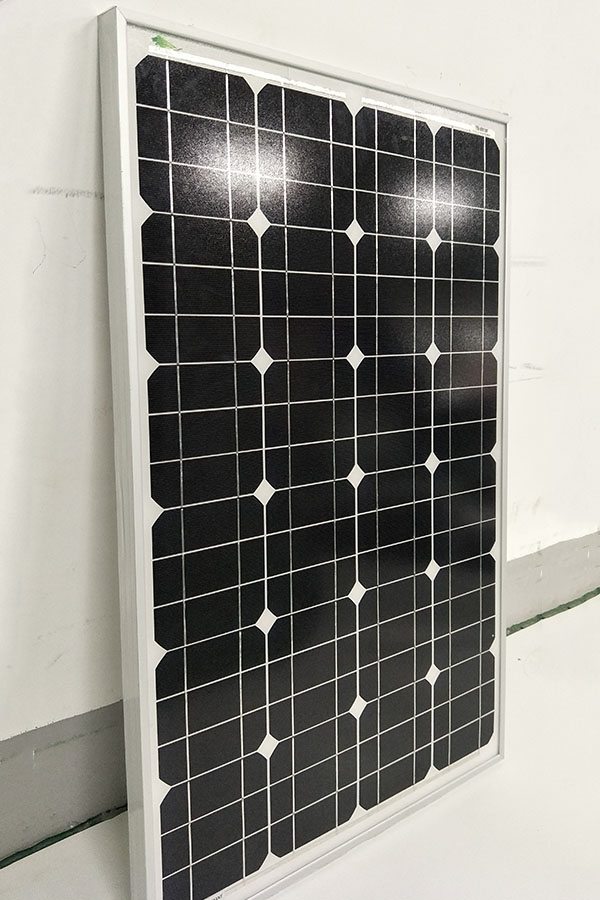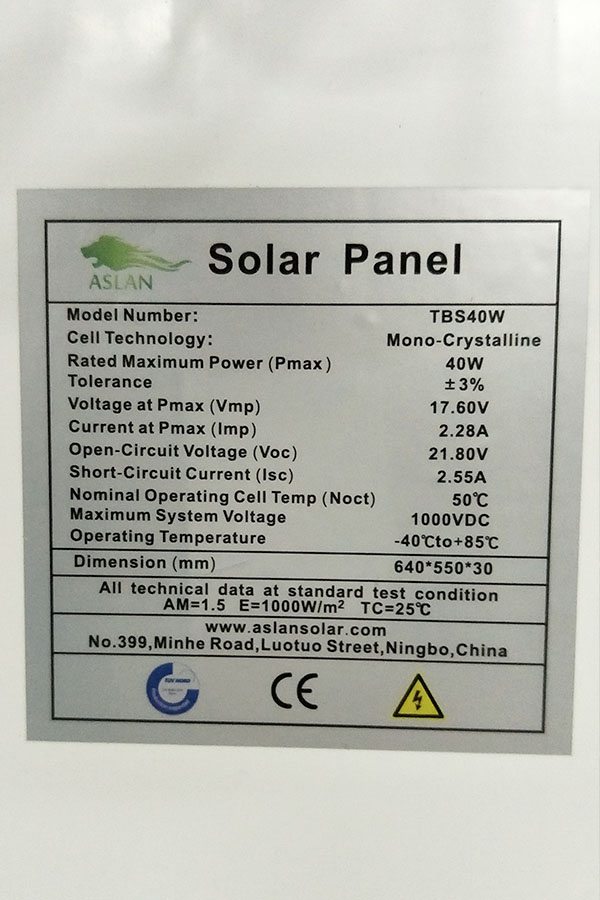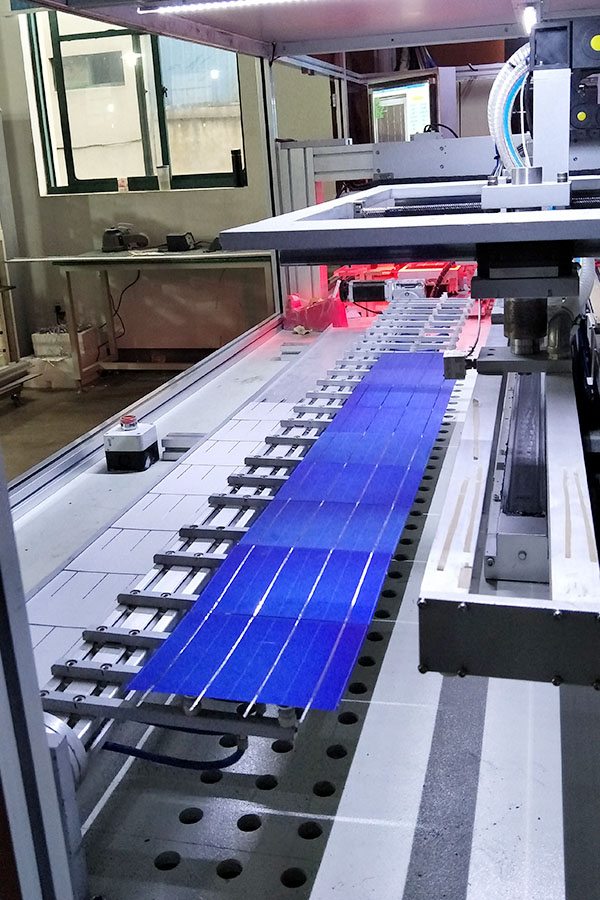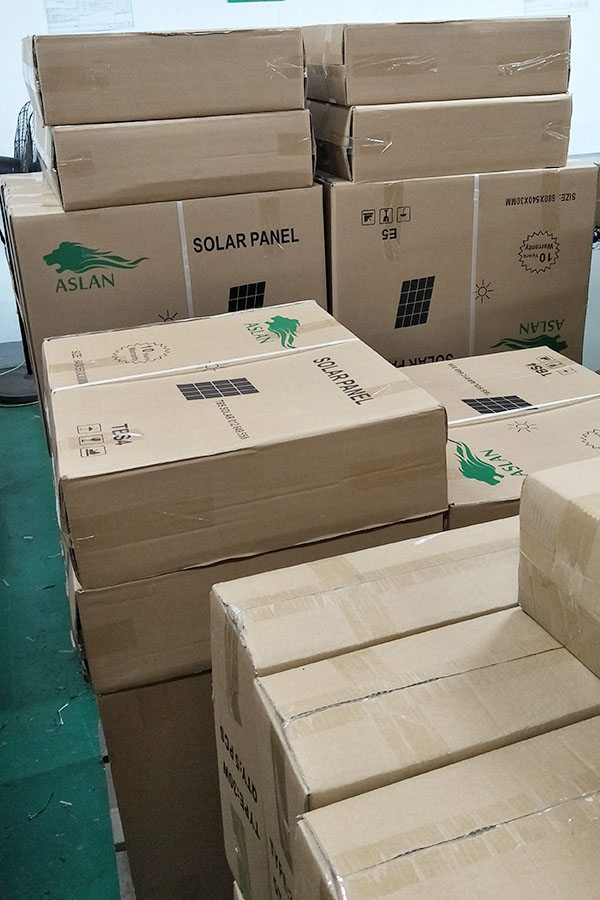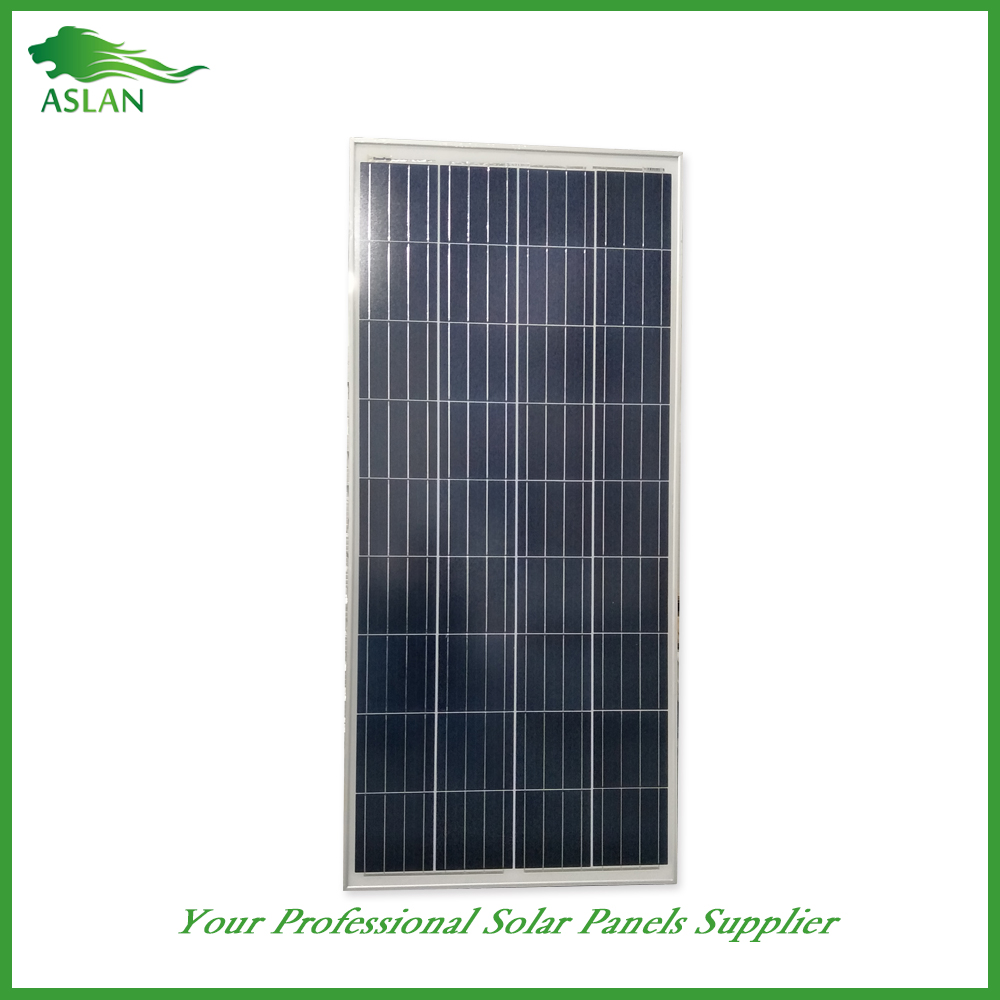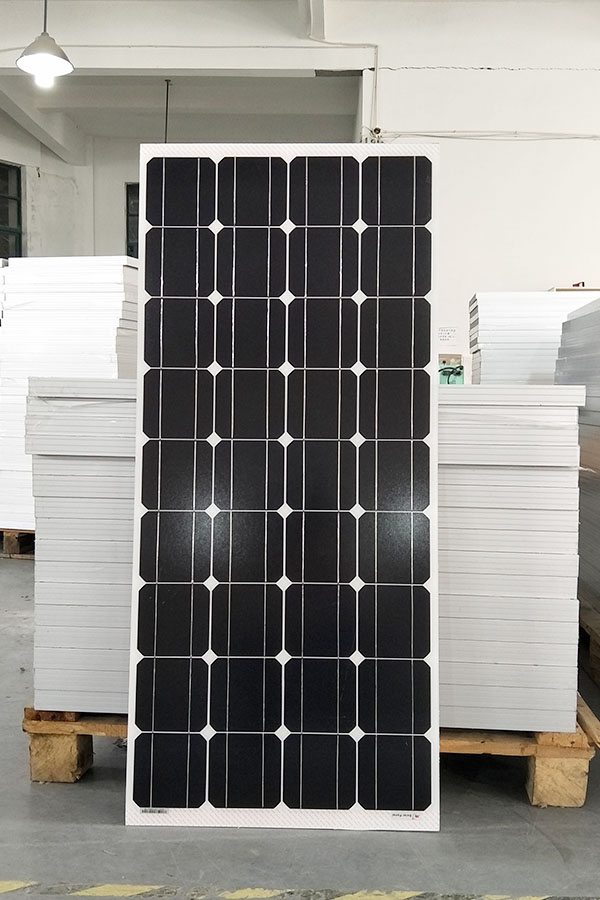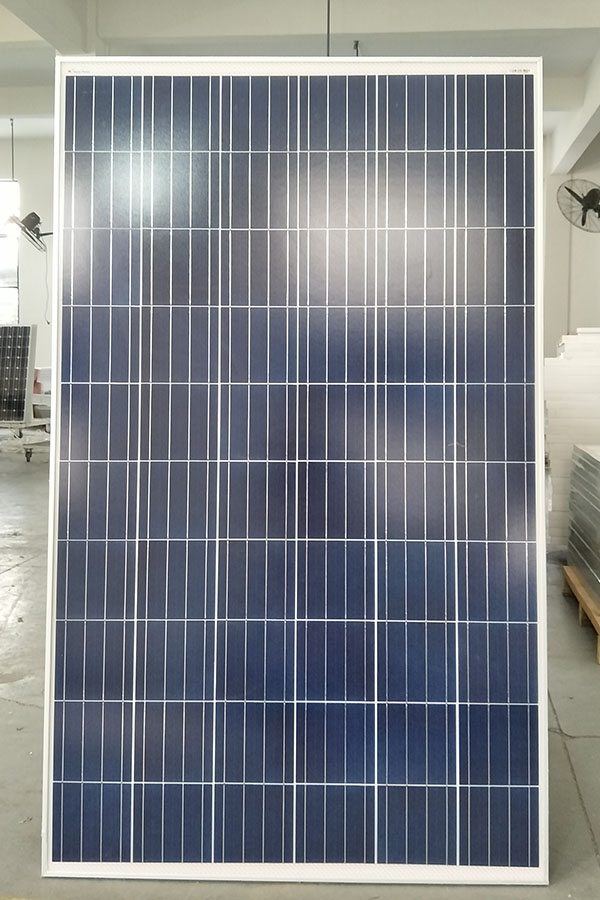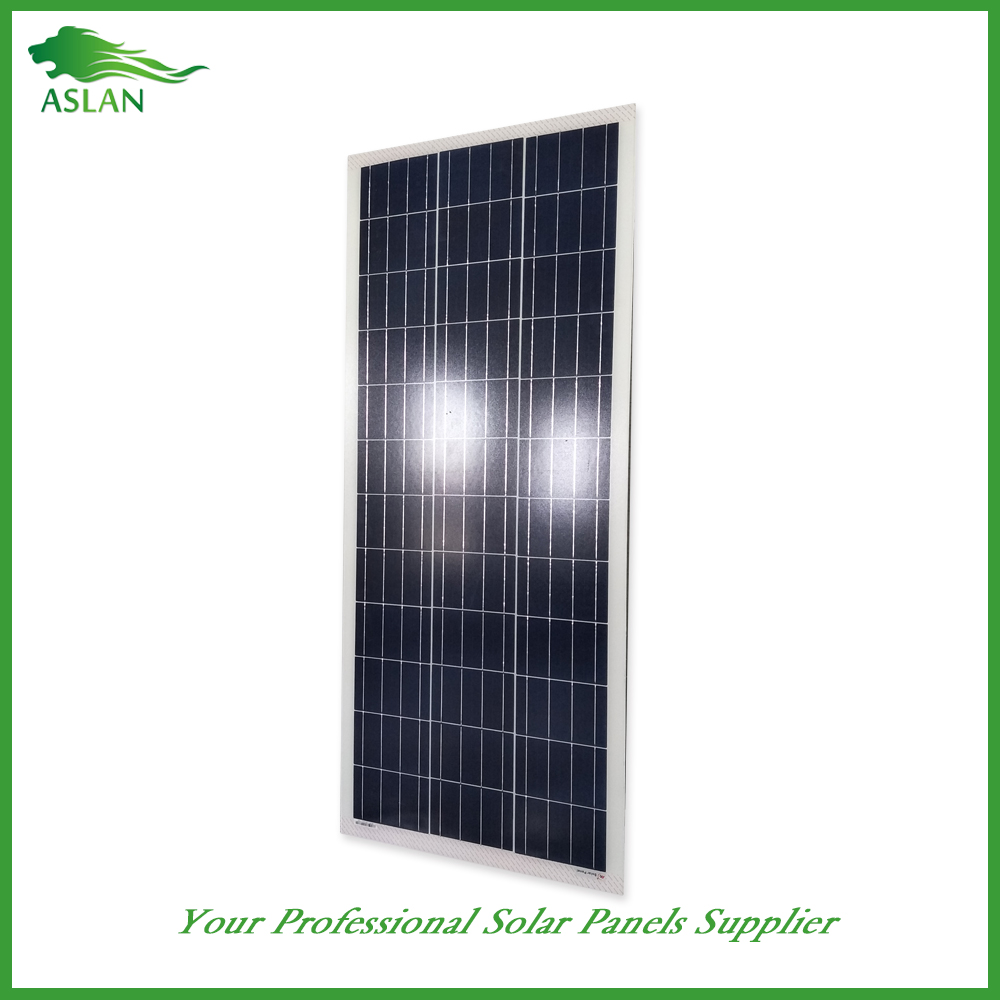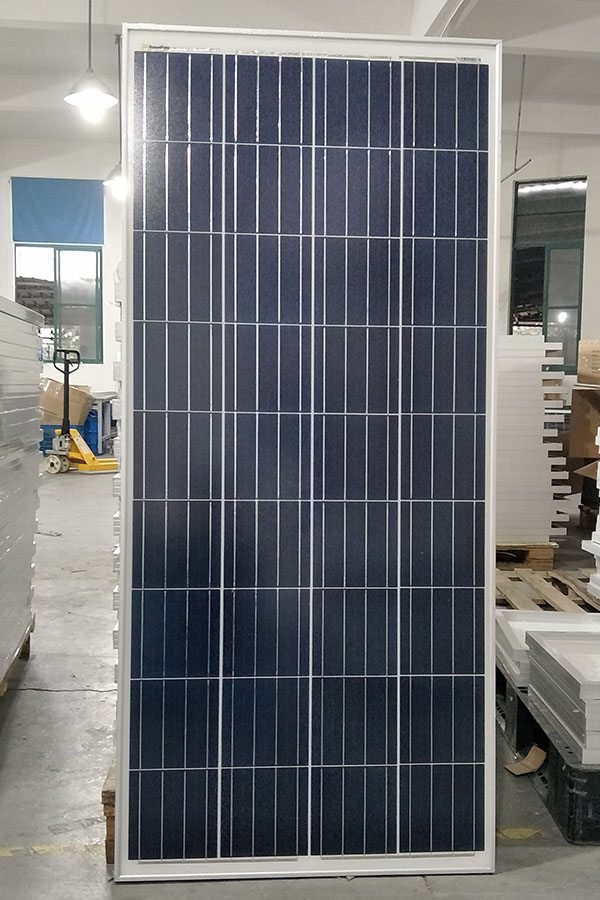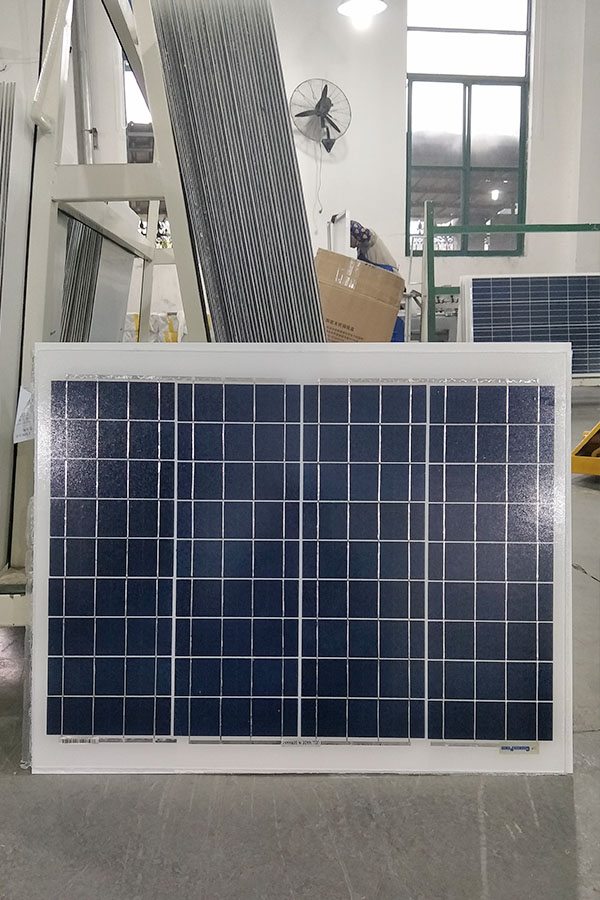Good User Reputation for Mono-Crystalline 80W Solar Panel in South Korea
Short Description:
We always work as a tangible team to ensure that we can provide you with the best quality and the best price for Good User Reputation for Mono-Crystalline 80W Solar Panel in South Korea, Welcome to visit us at any time for business relationship established.
Mono-Crystalline 80W Solar Panel
Technical parameter
Maximum Power(W) 80W
Optimum Power Voltage(Vmp) 15.90V
Optimum Operating Current(Imp) 5.03A
Open Circuit Voltage(Voc) 18.58V
Short Circuit Current(Isc) 5.59A
Mechanical Characteristics
Cell Type Monocrystalline 125x125mm (5 inch)
No of Cell 36 (4x9pcs)
Dimensions 906x670x35mm
Weight 7.2KGS
Front Glass 3.2mm,High Transmission, Low iron, tempered Glass
Junction box IP65 Rated
Output Cable TUV 1×4.0mm2/UL12AWG,Length: 900mm
Temperature and Coefficients
Operating Temperature(°C): -40°C ~ + 85°C
Maximum System Voltage: 600V(UL)/1000V(IEC) DC
Maximum Rated Current Series: 15A
Temperature Coefficients of Pmax: -0.435%
Temperature Coefficients of Voc: -0.35%
Temperature Coefficients of Isc: 0.043%
Nominal Operating Cell Temperature (NOCT): 47+/-2°C
Materials of solar panel
1).Solar Cell——Mono-crystalline solar cell 125*125mm
2).Front Glass——-3.2mm, high transmission, low iron, tempered glass
3).EVA——-excellent anti-aging EVA
4).TPT——-TPT hot seal made of flame resistance
5).Frame——anodized aluminum profile
6).Junction Box——-IP65 rated, high quality, with diode protection
Superiority: high quality anodized aluminum frame, high efficiency long life, easy installation, strong wind resistance, strong hail resistance.
Features
1. High cell efficiency with quality silicon materials for long term output stability
2. Strictly quality control ensure the stability and reliability, totally 23 QC procedures
3. High transmittance low iron tempered glass with enhanced stiffness and impact resistance
4. Both Polycrystalline and Mono-crystalline
5. Excellent performance in harsh weather
6. Outstanding electrical performance under high temperature and low irradiance
Quality assurance testing
Thermal cycling test
Thermal shock test
Thermal/Freezing and high humidity cycling test
Electrical isolation test
Hail impact test
Mechanical, wind and twist loading test
Salt mist test
Light and water-exposure test
Moist carbon dioxide/sulphur dioxide
Visit my Patreon:
https://www.patreon.com/AnythingWithWheels
I test the Chameleon CHA MPAS Military Portable HF Ham Radio Antenna on a pretty spring day in the park. I use also the ALLPOWERS 60W Foldable Sunpower Solar Panel to keep the portable ham radio power going.
This antenna is designed for portable, on the go.
I show you how to setup the chameleon military antenna using solar power.. It’s easy.
It’s a great camping antenna, or on the road, or traveling or vacation for an easy to setup ham amateur radio antenna.
You can compare this to the Alpha Military Antenna by using this visual video if you like.
These are rugged, and more importantly, easy to set up. It’s a great QRP setup. In fact, it’s the best QRP setup you can get in my humble opinion.
Of course it does handle more wattage than QRP. You can sent up to 50 watts CW or 100 Watts Side band.
I’d also consider this the best portable ham radio antenna as well.
CHA MPAS (MODULAR PORTABLE ANTENNA SYSTEM)
For quite awhile now Survival Tech Nord has been talking about radio COMMS and electronics gear from the “LEGO BLOCK” perspective: Well, Chameleon Antenna is proud to offer to the Survival Tech Nord viewers, the MPAS Kit.
About the MPAS
The Modular Portable Antenna System is a concept allowing the radio operator to configure and deploy the antenna system in a variety of configurations. Some of the possible deployment configurations:
• Vertical
• Horizontal
• Sloper
• Inverted “V”
• Inverted “L”
• NVIS
• Balcony
• Vehicle (Stationary)
• Man-Pack
Specifications:
1 X CHA MIL
1 X CHA HYBRID-MICRO
1 X CHA JAWMOUNT
From the ARRL web site:
Choosing an Antenna
A major failing of both experienced and novice QRPers is the antenna system. Unfortunately, most hams think low power equates with poor antennas. Many QRP operators seem to delight in using their rig with a 50-foot piece of wire thrown out the nearest window.
The basic rule of QRP antennas is that nothing beats a beam; and nothing beats a beam on a tall tower. Put up the best beam/tower combination you can afford. A good 3-element beam and 40foot tower will put you on a more-than-equal footing with those running 200 W to a vertical.
A good full-size dipole is the next best choice. On 20, 15 and 10 meters, a high dipole exhibits directivity, so place it broad-side to the desired direction of radiation.
Related to the dipole, and almost as easy to construct, is the single-quad loop. This antenna is more directive, has wide bandwidth and can exhibit up to 2-dB gain over a dipole.
The poorest choice for the QRPer is the vertical antenna. The vertical suffers two defects when compared to a dipole. It is highly susceptible to man-made QRN, notably power-line noise. For a vertical to have the same radiation efficiency of a dipole, a good radial system is required. Amateurs lacking space for beams or dipoles might consider the Cushcraft R-3 tuned vertical, which requires no radials and approaches the efficiency of a half-wave dipole.
Do not skimp on the coax. Use the best grade of RG-8 you can afford. We are not interested in power capability, but in achieving the lowest attenuation possible. The ham with an amplifier will not miss a couple of watts heating his coax as much as the QRPer running 5 W will. For portable operation, RG-8X may be used where its light weight and ease of handling offset the increase in attenuation. Make all connections clean and weatherproof. Strive for the highest possible efficiency in both feed line and the antenna.
Purchased in 2016 the new panel has performed very well. Note.. *positive connector MC4 (awaiting arrival) * Second power line for 1k heater and 240v AC
Using a 20 amp controller and a kill switch in the battery box
